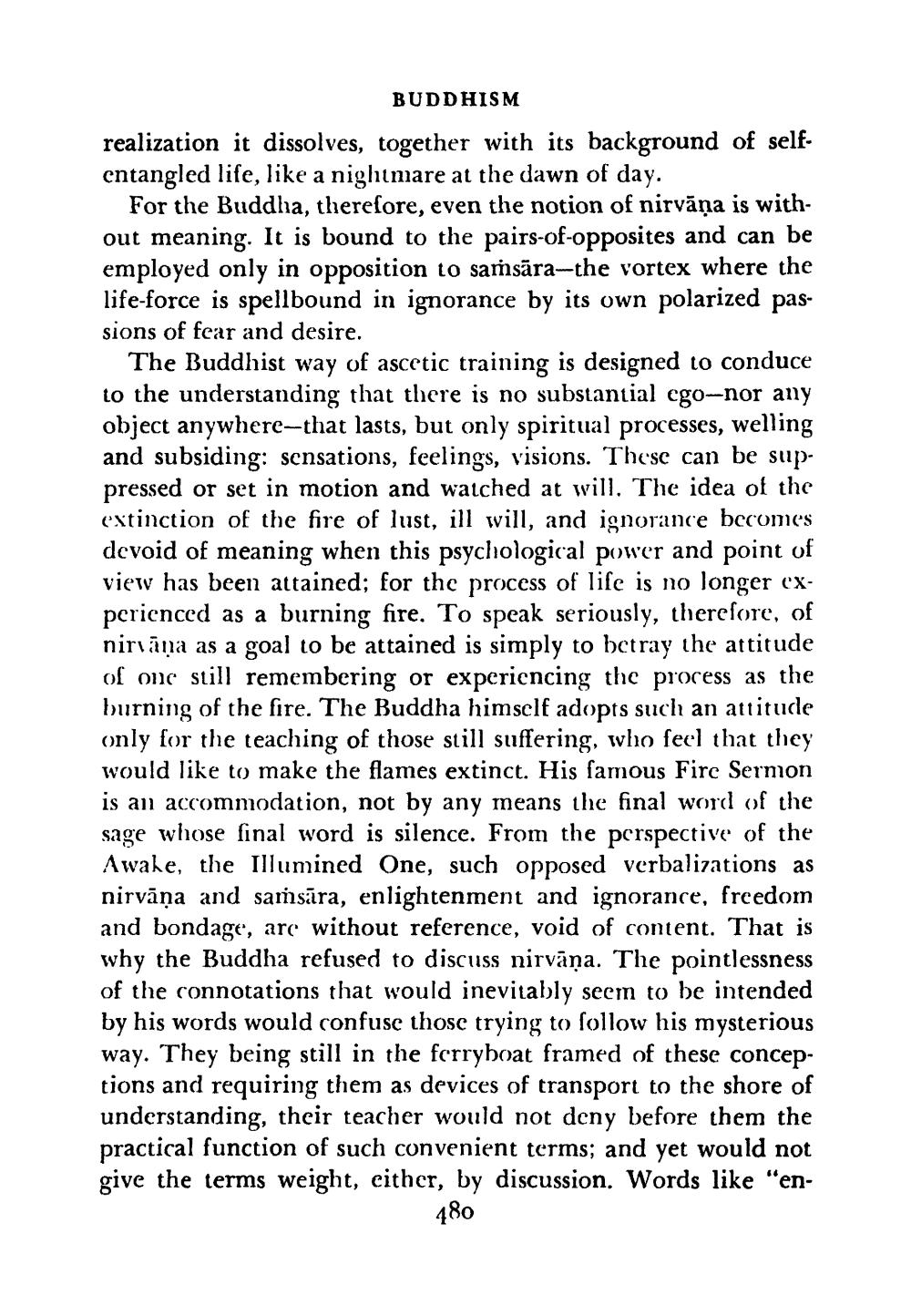________________
BUDDHISM realization it dissolves, together with its background of selfcntangled life, like a nightmare at the dawn of day.
For the Buddha, therefore, even the notion of nirvāṇa is without meaning. It is bound to the pairs-of-opposites and can be employed only in opposition to samsāra--the vortex where the life-force is spellbound in ignorance by its own polarized passions of fear and desire.
The Buddhist way of ascetic training is designed to conduce to the understanding that there is no substantial cgo-nor any object anywhere-that lasts, but only spiritual processes,
ling and subsiding: sensations, feelings, visions. These can be suppressed or set in motion and watched at will. The idea of the extinction of the fire of lust, ill will, and ignorance becomes devoid of meaning when this psychological power and point of view has been attained; for the process of life is no longer experienced as a burning fire. To speak seriously, therefore, of niruāna as a goal to be attained is simply to betray the attitude of one still remembering or experiencing the process as the burning of the fire. The Buddha himself adopts such an attitude only for the teaching of those still suffering, who feel that they would like to make the flames extinct. His famous Firc Sermon is an accommodation, not by any means the final word of the sage whose final word is silence. From the perspective of the Awake, the Illumined One, such opposed verbalizations as nirvāṇa and samsāra, enlightenment and ignorance, freedom and bondage, arc without reference, void of content. That is why the Buddha refused to discuss nirvāņa. The pointlessness of the connotations that would inevitably seem to be intended by his words would confuse those trying to follow his mysterious way. They being still in the ferryboat framed of these conceptions and requiring them as devices of transport to the shore of understanding, their teacher would not deny before them the practical function of such convenient terms; and yet would not give the terms weight, either, by discussion. Words like "en
480




